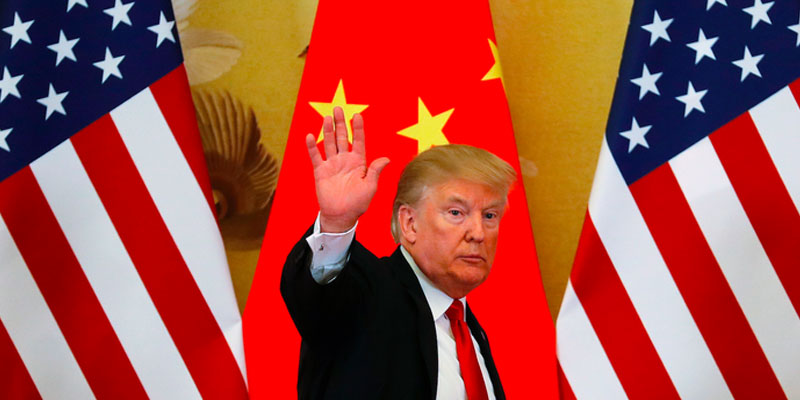Trump’s Latest Crackdown: Harvard Blocked, Visas Suspended
In a dramatic escalation of its restrictive immigration agenda, the Trump administration has blocked Harvard University from enrolling new foreign students and directed all U.S. embassies and consulates to halt student and exchange visa interviews. The move, detailed in a classified cable sent on May 27, also signals the beginning of expanded social media surveillance of international applicants.
This directive marks yet another chapter in President Trump’s broader strategy to tighten immigration, this time targeting the heart of America’s soft power: its universities. The decision, while presented as a national security measure, has triggered widespread alarm among educators, economists, and global scholars, fearing dire long-term consequences for the U.S.
Why This Matters: A War on Global Talent
For decades, America has been a magnet for global talent, with international students bringing not just money but also ideas, innovation, and cross-cultural understanding. In the 2023–2024 academic year, more than 1.1 million international students were enrolled across U.S. institutions. Harvard, Columbia, NYU, and Northeastern are just a few among dozens of campuses with flourishing international populations.
The new policies not only disrupt the lives of thousands of aspiring students, but they also strike at the financial backbone of U.S. higher education, especially elite and private institutions. Foreign students are far more likely to pay full tuition — often without aid — effectively subsidizing domestic students and supporting university infrastructure.
A study from 2015 found that foreign students made up only 4.6% of total enrollment but accounted for 28% of total tuition revenue.
Economic Fallout: A $44 Billion Blow
The implications of banning or severely restricting foreign student enrolment go far beyond academia. According to NAFSA: Association of International Educators, international students contribute a staggering $44 billion annually to the U.S. economy through tuition, housing, transportation, food, and consumer spending. That’s not all—they also support over 378,000 jobs, from campus staff to local businesses.
Every three international students create at least one job. A drop in foreign enrolment would therefore undermine job creation, weaken local economies, especially college towns, and disrupt sectors ranging from housing to hospitality.
Consider this: at Harvard, total costs per student (tuition, housing, and fees) approach $87,000 annually. Multiply that by thousands, and the potential loss becomes clearer. Many smaller colleges, already struggling with post-COVID enrolment dips, rely on international students to stay financially afloat.
Undermining U.S. Soft Power and Global Standing
Beyond economic and educational metrics, the symbolic and diplomatic costs are even greater. American universities have long been central to the country’s soft power, shaping global leaders and nurturing pro-American sentiment among foreign elites. International students become informal ambassadors, carrying American ideals back to their home countries.
Eliminating or reducing their presence diminishes this influence. “We turn global talent away at our own expense,” warned Fanta Aw, executive director of NAFSA. This not only hurts America’s global competitiveness, but also damages the country’s image as a beacon of opportunity and openness.
Scott Weinhold, from the State Department’s Bureau of Educational and Cultural Affairs, emphasized: “The experience of studying in the United States not only shapes the lives of individuals, but also the future of our interconnected world.”
The Harvard Factor and the Broader Implications
The administration’s move to revoke Harvard’s license to enroll foreign students was particularly jarring. Though temporarily blocked by a federal court, it sent shockwaves across academic and diplomatic circles, reinforcing fears that no institution is safe from political overreach.
What’s more concerning is that the broader crackdown is already working in unintended ways. Legal scholars report that thousands of students have either lost legal status or are reluctantly choosing universities in Canada, the UK, or Europe over the U.S. The ripple effects are visible. A decline in STEM talent, research output, and startup creation could follow.
Larry Summers, former Harvard president and U.S. Treasury Secretary, captured the gravity best: “Closing yourself off from any group, and especially the 97% of the world’s population that lives outside the United States, is a prescription for failure.”
The Path Forward—Reform, Not Restriction
While national security and student vetting are valid concerns, using them as a pretext to clamp down indiscriminately on global academic mobility is short-sighted and self-defeating.
The current trajectory alienates talent, weakens America’s innovation ecosystem, and threatens its global leadership in science, education, and diplomacy. Universities—once America’s pride and a soft-power giant—could face an irreversible decline.
Rather than blanket bans and bureaucratic hurdles, the U.S. should focus on smart reforms, robust but fair vetting, and a renewed commitment to international academic exchange.
The message is clear: a thriving America must remain an open America. Shutting the door on global minds is not only unwise—it’s un-American.
(With agency inputs)
















